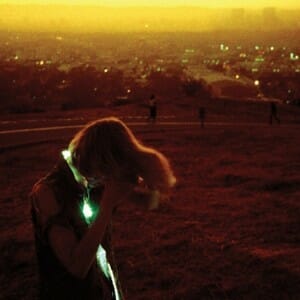In the first few seconds of Era Extraña, we hear the sound of swirling 8-bit particles rapidly coming to a celestial boil. What follows seems to resemble what the birth of the universe must have sounded like had the Big Bang occurred inside the original Nintendo Entertainment System. This is the world in which Alan Palomo sets his sophomore release under the chillwave moniker Neon Indian.
The opening track, “Heart: Attack,” is the first installment in an instrumental trilogy that runs throughout the album, tying it together. This cohesiveness is something that sets Era Extraña apart from its predecessor immediately. That’s not to say that 2009’s Psychic Chasms was disjointed, but it was certainly fragmented. The intention to create a fluid record was there, particularly with the sample from “6669 (I Don’t Know If You Know)” resurfacing in the finale “7000 (Reprise),” for example. But with his second run, Palomo gets it right.
Perhaps the newfound focus present in the record came from the setting in which the album was created. Palomo wrote and recorded Era Extraña in constant solitude last winter in a small apartment in Helsinki, Finland. “It’s the closest you can get to feeling like you’re at the edge of the earth,” he said of the experience in a recent press release. “And there were moments where I lost sight of what I was really there to do.”
Palomo certainly expresses these feelings of being lost and alone in the themes and tone of the new record. Part of what makes Era Extraña a great follow-up to Psychic Chasms is that it features the same lazy summer feel that made Neon Indian’s debut so popular. But this time around, it’s slightly veiled in darkness—maybe not darkness, perhaps, but a definite dimming of the lights. The sun has gone down. Summer is over.
Summer may not be the only thing that’s gone either. The LP is wrought with expressions of lost love. If you can’t quite catch the lyrics of Palomo’s reverb-drenched vocals, a quick glance at song titles like “The Blindside Kiss” and “Hex Girlfriend” are all you need to get where he’s coming from.
It seems like Era Extraña takes place somewhere between the blow of an overwhelming loss and eventually being okay with letting it go. There is a sense of longing for that lost summer and lost love found throughout the record and even in the album title. Extraña can mean “strange” or “to long for” depending on the context. And it is a strange time, a strange era, in our lives when we’ve lost something but can’t quite figure out what to do about it.
Isn’t it?
